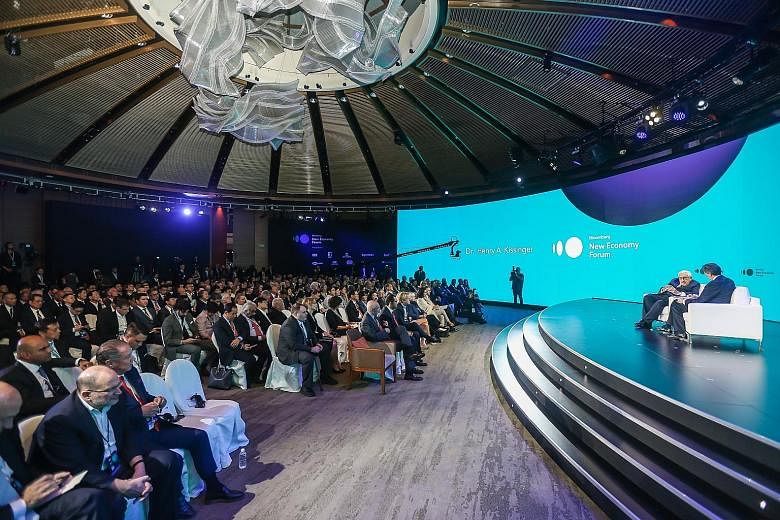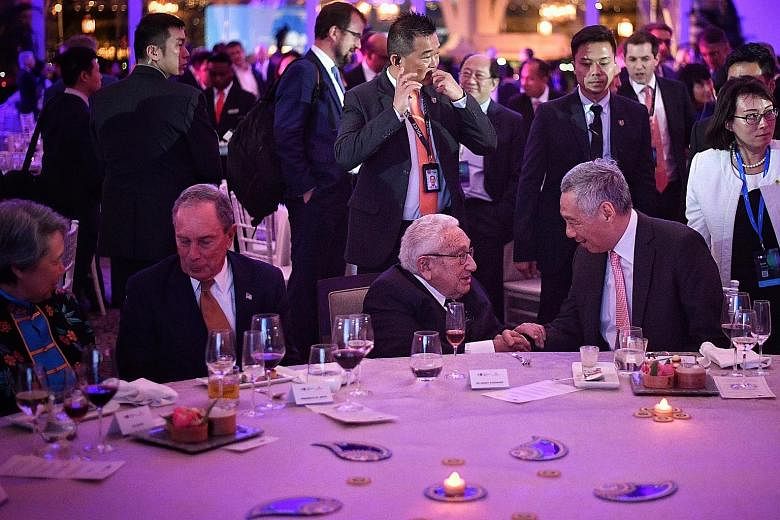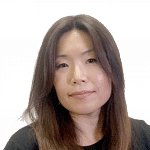As the chief architect of the United States' outreach to communist China more than four decades ago, former diplomat Henry Kissinger could be forgiven for viewing the current tension between the two countries with some dismay. But the truth is, though Sino-US relations are at the lowest they have been for years, Dr Kissinger remains optimistic that the two will not come to such blows that it would shake the global order.
However, both parties need to rebalance their perspectives, in the same way that their leaders had sought to explain their thinking to each other and find sufficient understanding 40 years ago, said Dr Kissinger, 95, who is widely regarded as one of the top strategic thinkers in the world.
When he knocked on China's door as Washington's emissary with his historic trip to Beijing in 1971, his mission was to begin the strategic change in the equation of the Cold War between the US and the then Soviet Union, and bring China into the international order.
"We knew very little of China but they knew a lot about us, because Chinese negotiators had read everything I'd ever written," said Dr Kissinger to laughter in the ballroom of the Capella Singapore, where he was speaking yesterday at the inaugural Bloomberg New Economy Forum.
That secret visit by Dr Kissinger, who was national security adviser, paved the way for President Richard Nixon's trip the following year, where he met Chinese leader Mao Zedong and subsequently established diplomatic relations.
China's economic might has grown by leaps and bounds since then, and while Nixon and Mao had sought to find common ground despite the wide disparity, Sino-US relations today have soured as the two major powers tussle for dominance.
"The challenge is to maintain a fundamentally cooperative relationship amid inherent differences of approach produced in large part by the changing technology and in some part due to the different philosophical approaches to challenges between the United States and China," said Dr Kissinger, who was also US secretary of state from 1973 to 1977.
"I believe that it is essential for China and the United States to explain to each other what the objectives are that they feel they must achieve and what the concessions are that they must not be asked to make, and the concessions each is willing to make, and not to get lost in a lot of detail before you know where you're trying to go."
A fundamental difference between US and Chinese thinking, he said, is that if there is a problem, Americans believe there will be a short-term solution, while the Chinese think problems are never completely solved and every solution is a ticket to a new set of problems.
"I think if the world order becomes defined by continuing conflict between the US and China, sooner or later, it runs the risk of getting out of control," he said.
"Some disagreements are inevitable. But the objective needs to be that both countries recognise that a fundamental conflict between them will destroy hope for a world order and run to great risk of conflict. And I think that objective can be achieved, and I am in fact fairly optimistic that it will be achieved."
Adaptation is needed on both sides: Americans have to learn that not every crisis is caused by ill will and that there is a difference between educating people and learning to cooperate with them.
China, which has not had the experience of being in a relationship of balance as it has historically been the dominant country in the region, will have to recognise there is now a balance of power.
Dr Kissinger is among 400 business and government leaders who have gathered in Singapore for the first Bloomberg New Economy Forum, hosted by media mogul and former New York mayor Michael Bloomberg.
On China-US relations
Dr Henry Kissinger spoke to Bloomberg editor-in-chief John Micklethwait at the Bloomberg New Economy Forum in Singapore yesterday. Here are some excerpts:
Mr Micklethwait: So you see this rapidity of the way in which China has evolved is in some sense the cause of some of the current tensions?
Dr Kissinger: China has become a substantially new player that can compete with the United States in varied fields, and so we are bound to step on each other's toes around the world. The challenge is to maintain a fundamentally cooperative relationship amid inherent differences of approach produced in large part by the changing technology and in some part due to the different philosophical approaches to challenges between the United States and China.
Q: Where do you see the common objectives? You talked a bit earlier about different philosophies. Maybe you can talk about where you see the commonalities and where are the differences.
A: One inherent problem is that Americans, on the whole, think that if there is a problem, there's a short-term solution and deal with it. The Chinese, on the other hand, think that the problems are never completely solved and that every solution is an admissions ticket to a new set of problems.
So once one grants there's difference in perspective, I think if the world order becomes defined by continuous conflict between the United States and China, sooner or later it runs the risk of getting out of control, which was the history of how World War I broke out in Europe. And so some disagreements are inevitable. But the objective needs to be that both countries recognise that a fundamental conflict between them will destroy hope for a world order and run to great risk of conflict. And I think that objective can be achieved, and I am in fact fairly optimistic that it will be achieved.
Q: Do you think the Chinese understand the world order that you described in your last book, that there is an idea, that there is a necessity of having some degree of balance in the way the world is run?
A: The Chinese have not had to experience a relationship of balance with others since they've been through most of their history the dominant country in the region. But it is one of the challenges of their adjustments to recognise that... The evolution cannot be forced, it needs to be understood. I think both sides will have to learn adaptations of their history.
Q: Which adaptation of their history do the Americans need to learn?
A: The Americans have to learn that not every crisis is caused by ill will, and also that there is a difference between educating people and learning to cooperate with them.



